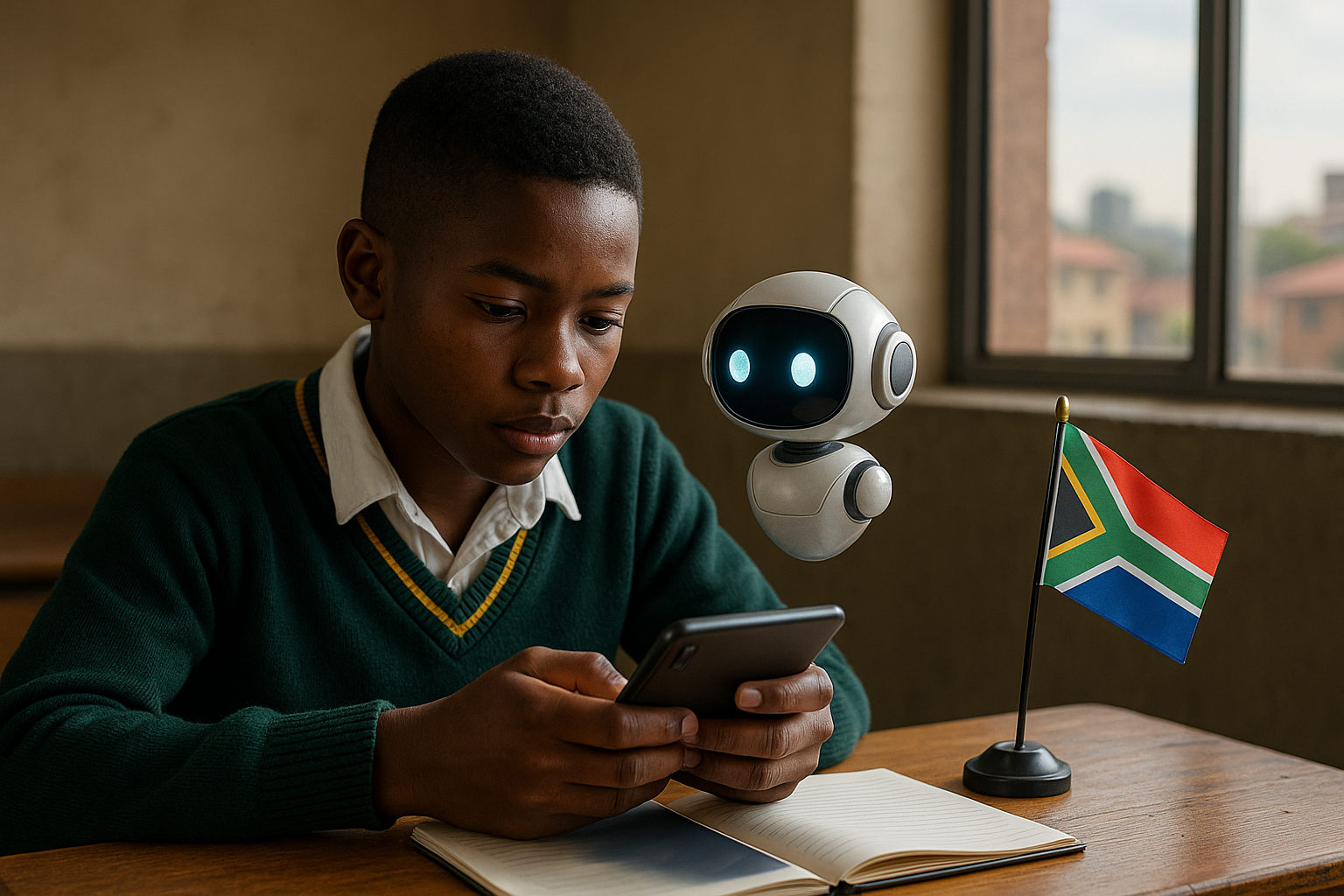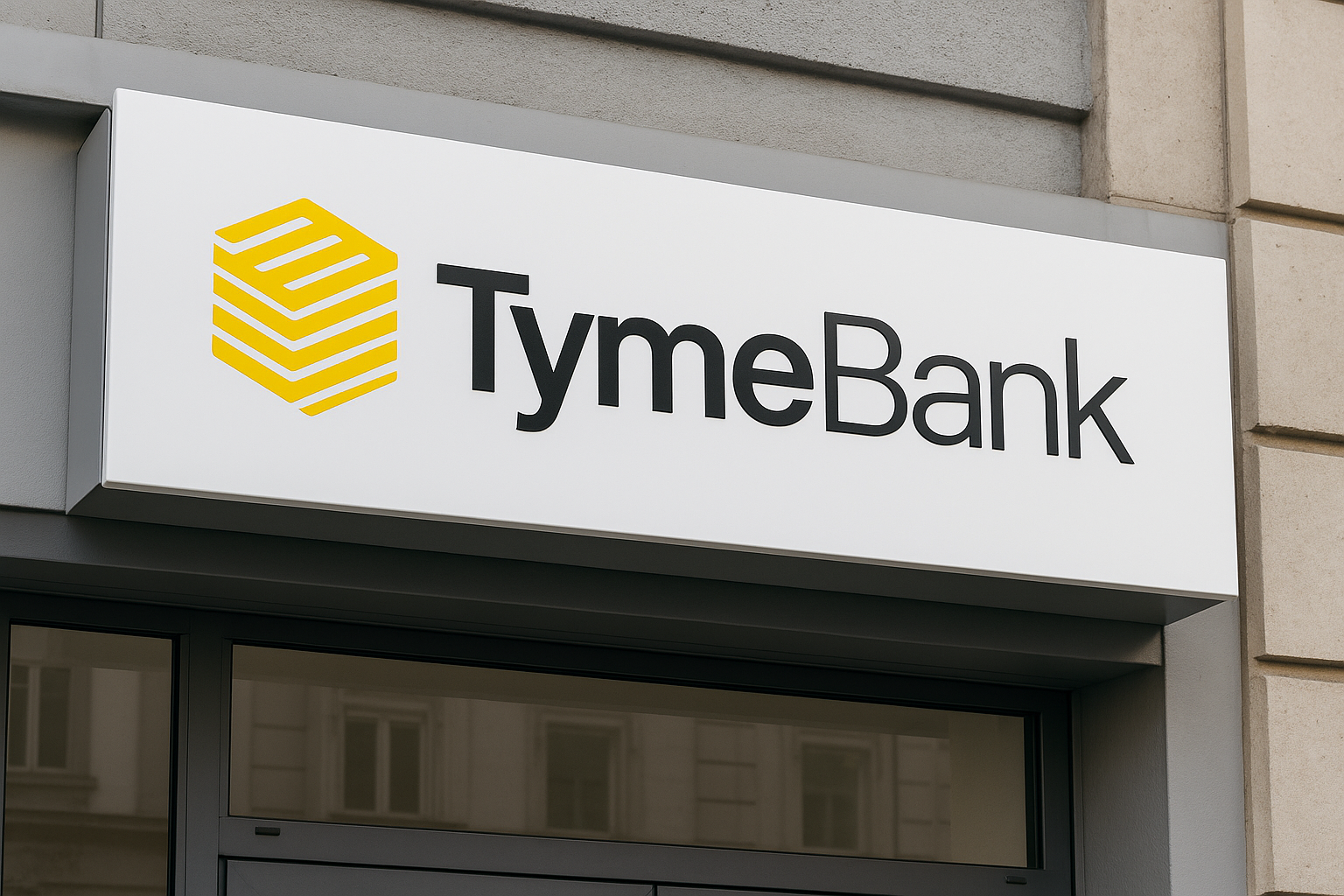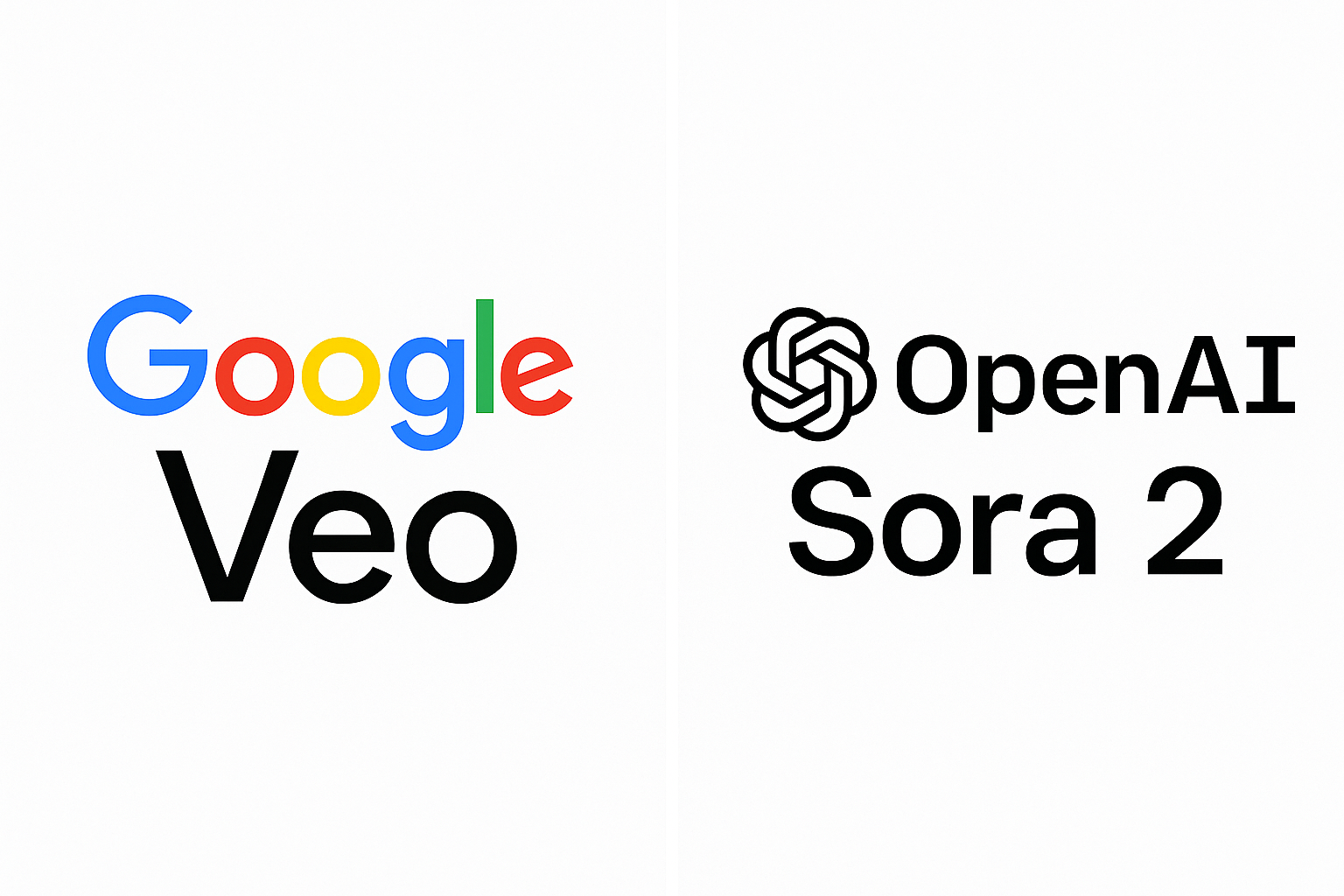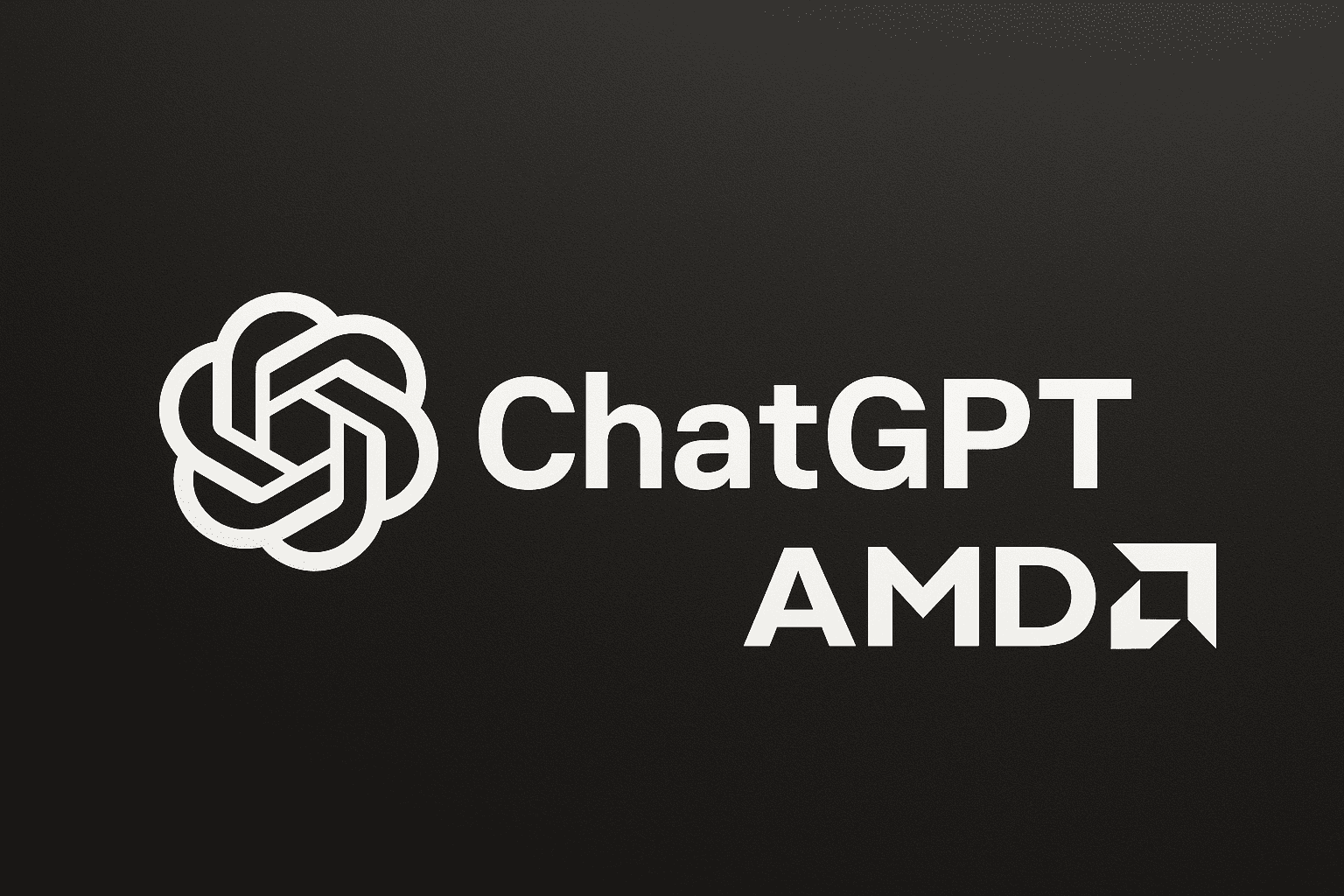AI in South African Education: Transforming Learning for Every Student

AI in South African Education
South African education faces massive challenges. We’re talking about overcrowded classrooms, not enough teachers, huge language barriers, and unequal access to resources that would make anyone pause. But here’s where things get interesting: artificial intelligence (AI) might just be the game-changer our education system desperately needs. The way AI is used in South African education could genuinely fix some big problems and create a fairer, more effective learning environment for all our kids.
Just step into any South African classroom, and you’ll see the tough reality. One teacher trying to manage 40 or 50 learners, not enough textbooks so kids share worn copies, and bright young minds speaking different home languages struggling to get concepts taught in English or Afrikaans. It’s a tough starting point, but it’s where we are.
Trying to teach everyone the same way just won’t cut it in this situation. How do you give each child individual attention when you’re so stretched? How do you make sure every student gets what they need when the odds are stacked against both teachers and learners? This is precisely where AI steps into South African education – not to replace our incredibly hard-working teachers, but to give them superpowers they never knew they had.
Breaking Language Barriers with AI in Our Schools
Imagine a Grade 4 learner in KwaZulu-Natal just not getting maths because the lessons are only in English, but they think in isiZulu. Regular teaching hits a wall here. But AI-powered translation and multilingual learning tools could instantly close this gap, making education accessible across South Africa’s many languages.
AI tutoring systems are already being built that can effortlessly switch between languages, explaining photosynthesis in Sepedi one minute and algebra in Xhosa the next. These aren’t just simple translators; they’re smart systems that understand local culture and how different kids learn. This means real language support in education.
Think about interactive lessons that switch to a student’s preferred home language while slowly bringing in English words they’ll need for school. The child gains confidence in their first language and picks up the English skills important for later studies. It’s like having a patient, multilingual teaching assistant available 24/7, offering truly personalized learning in South Africa.
Personalized Learning That Actually Works Thanks to AI
Every teacher knows Thabo learns differently from Nomsa, and Nomsa learns differently from Pieter. But with 45 students in a class, trying to act on that knowledge is almost impossible. AI in South African education completely changes this.
Smart learning platforms can track exactly how each student takes in information. They figure out if a student needs diagrams, learns better by listening, or prefers hands-on activities. The system adjusts immediately, giving extra practice for concepts a student is stuck on or letting them move faster through stuff they already know. This is what adaptive learning in South Africa is all about.
Take maths, for example – a subject many South African learners find tough. An AI tutor can pinpoint exactly where a student’s understanding breaks down. Is it basic counting? Fractions? Word problems? Instead of moving the whole class forward while some kids get left behind, AI makes sure no learner falls through the cracks, providing direct help to help them master topics.
Making Quality Education Available to Everyone
Load shedding cuts power for hours, but most smartphones keep going. AI-powered educational apps made to work offline could keep learning on track even when Eskom lets us down. These systems download lessons when there’s power and keep working offline, updating progress once the internet is back. This directly tackles a huge challenge of access to education in South Africa.
Rural schools with limited or no internet could get a huge boost from AI systems that run on basic smartphones. A child on a farm in the Eastern Cape could get the same quality AI tutoring as a student in Sandton. This levels the playing field in ways we’ve never seen before.
Voice-based AI means students don’t even need strong reading skills to start learning. They can ask questions in their home language and get answers that meet them exactly where they are academically, pushing for inclusive education through AI.
Supporting Our Overworked Teachers with AI Tools
Let’s be honest: our teachers are heroes working in impossible conditions. AI in South African education won’t take their jobs. Instead, it can handle all the routine, time-consuming tasks that eat up their valuable teaching time. Things like automated essay grading, tracking student progress, and helping with lesson planning free up teachers to do what they do best: inspire, mentor, and truly connect with their students.
Imagine an AI assistant that helps teachers spot which students are struggling before they fall too far behind. Early warning systems, powered by AI, could highlight learners who need extra help, allowing teachers to step in quickly before small problems become too big to fix.
Professional development also becomes easier to access. AI-powered training modules could help teachers in remote areas get the same high-quality development as their city counterparts, all tailored to their specific classroom needs.
Boosting Exam Prep and Assessment with AI
Matric exams stress everyone out – students, parents, and teachers. AI tutoring systems could give students targeted exam practice, figuring out their weak spots and creating personal study plans. Instead of just generic past papers, students get practice questions made specifically for what they need.
These AI education tools could even simulate exam conditions, help with time management, and give instant feedback on practice tests. For subjects like Maths and Physical Sciences, where many students struggle, AI tutors (ChatGPT Launched study mode) could work through problems step-by-step, changing their teaching approach based on how each student learns best.
Helping Students with Learning Disabilities and Special Needs Through AI
Many South African schools just don’t have the specialized help needed for learners with dyslexia, ADHD, or other learning differences. AI tools for education could provide the specific support these students need, offering new ways for them to understand and show what they’ve learned.
For instance, text-to-speech systems can help dyslexic students read written content, while AI-powered note-taking tools can support students who struggle with attention. Visual learning platforms are great for students on the autism spectrum, and adaptive interfaces can adjust for various physical disabilities, creating truly inclusive AI education.
Revolutionizing Vocational and Technical Education with AI
Not every student is going to university, and that’s perfectly fine. AI in South African education could totally change technical and vocational training by offering hands-on simulations and virtual workshops. Students could practice welding in virtual reality, learn car repair using AI-guided diagnostics, or master hospitality skills through interactive scenarios.
These edtech tools make expensive equipment and specialized training more available. This is super important in a country that desperately needs more skilled workers to grow its economy.
Building Digital Skills for South Africa’s Future
As South Africa moves towards a more digital economy, students need tech skills beyond just basic computer use. AI-powered coding tutorials could teach programming concepts in fun, game-like ways, making complex ideas simple for young minds.
Even creative subjects get a boost – AI tools could help students explore digital art, music production, and multimedia storytelling. This opens doors to creative careers many might never have thought about. This is all about preparing students for the jobs of tomorrow.
Challenges We Still Need to Tackle for AI in SA Education
While the potential is huge, let’s not pretend there aren’t big hurdles. Internet access is still patchy, not everyone has a smartphone, and many teachers need a lot of support to use AI tools well. Data costs are still too high for many families, and concerns about screen time and digital well-being are absolutely valid.
Privacy and student safety also need careful thought. How do we protect sensitive student data on AI learning platforms? How do we make sure AI systems truly reflect South African values and contexts instead of just bringing in foreign ideas? These are crucial ethical questions for AI in education.
The Path Forward for AI in South African Education
Here’s the good news: South Africa has a history of jumping ahead technologically. We went straight to mobile banking without everyone getting credit cards first. We could do the same with AI in education, moving straight to advanced, personalized learning systems without going through all the slower steps.
Making AI work in SA education will need strong partnerships between the government (like the Department of Basic Education), private companies (tech firms, mobile networks), and schools themselves. Most importantly, we need AI systems designed specifically for South Africa, not just tweaked versions of international products.
Teacher training becomes key. Our educators shouldn’t fear AI; they should be empowered to use its incredible power effectively. When teachers understand how AI can make their work more impactful, that’s when real magic happens in classrooms across the country.
Looking Ahead: The Future of AI in South African Learning
The AI revolution in education isn’t coming – it’s already here. The big question for South African education isn’t if AI will change things, but if we’ll actively shape that change to fit our unique needs and solve our specific problems.
If done smartly and inclusively, AI could help us leapfrog decades of educational inequality. Every child, no matter where they live, how much money their family has, or what language they speak at home, could get personalized, high-quality education that adapts to their learning style and speed.
The dream of truly inclusive, effective education for all South African learners is within reach. It’s time to responsibly use the AI tools that can make this dream real, while always making sure the human heart of education – the vital connection and mentorship between teachers and students – stays stronger than ever. Our children deserve nothing less than the best education we can give. With AI as our powerful ally, that “best” just got a whole lot better.





